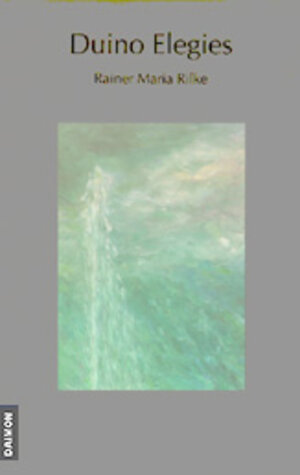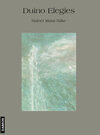
×
![Buchcover ISBN 9783856305413]()
The Duino Elegies are one of the twentieth century’s great works of art. In the space of ten elegies, presented here in a bilingual edition, an impassioned monologue struggles to find an individual answer to what it means to be human in a world torn by modern consciousness.
In his introduction, David Oswald writes, “Rilke’s poetry shows an unusual sensitivity to inner experience and to the symbolic processes of the psyche, two things that are important to me in my work as a Jungian analyst. His carefully crafted language conveys the movements of this otherwise ’unsayable’ realm and addresses the issues of finding the proper relationship to it. My goal has been to create a translation that preserves this sensitivity and precision…
What are we? The Elegies seek a measure of humanness that is positive in form, one that goes beyond the painful recognition that we are neither totally natural in the way that animals are, nor totally transcendent as angels are. The emphasis on ’are’ comes from the despair over the split of consciousness that hangs us ’between current and stone,’ between the flow of our inner experience and the rigidity of our interpreted world, thus making it impossible for us to be ’something one’ or something that remains constant. To be an ’I’ means to be constantly caught between the polarities of the night and the day world, of animal and angel, of man and woman, of sexuality and spirituality, of hero and lover, of inner and outer world, of life and death, and never to be at one with any of it.
The Duino Elegies do not overcome or eliminate this lament, but the cycle tries to give meaning to the split by giving consciousness a direction towards ’the open.’”
David Oswald (b. 1953) is finishing his training in analytical psychology at the C. G. Jung Institute in Zürich, Switzerland, where he has been living for the past eight years. Raised in Owatonna, Minnesota, he has degrees in German from the University of Kansas and Mathematics from the University of Minnesota.
“Among the English translations of Rilke’s Duineser Elegien that I am familiar with, the one by David Oswald seems to me to be the best. Not only does it faithfully reproduce the content of the original poems – something which earlier translations have managed to do – but also, through its closely matching rhythm and its use of an often bold imagery rooted in the spirit of the English language, it conveys their poetic substance as well.” – Prof. Jacob Steiner, President of the International Rilke Society
David Oswald (b. 1953) is finishing his training in analytical psychology at the C. G. Jung Institute in Zürich, Switzerland, where he has been living for the past eight years. Raised in Owatonna, Minnesota, he has degrees in German from the University of Kansas and Mathematics from the University of Minnesota.
“Among the English translations of Rilke’s Duineser Elegien that I am familiar with, the one by David Oswald seems to me to be the best. Not only does it faithfully reproduce the content of the original poems – something which earlier translations have managed to do – but also, through its closely matching rhythm and its use of an often bold imagery rooted in the spirit of the English language, it conveys their poetic substance as well.” – Prof. Jacob Steiner, President of the International Rilke Society



